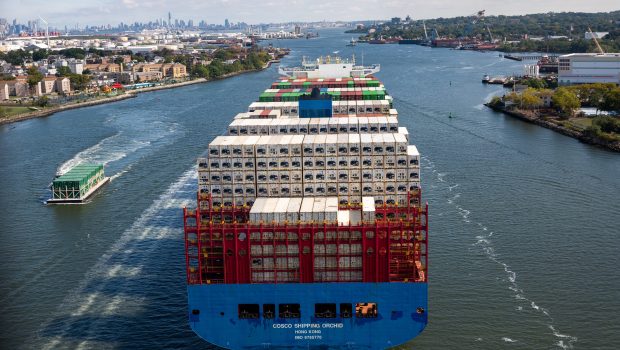Did the Port Workers Go on Strike? Updates on Longshoremen

The port strike has begun, and countless American consumers are wondering what to stock up on now that there will be a widespread shortage on various goods.
Around 45,000 port workers of the International Longshoremen’s Association (ILA) went on strike at midnight on Tuesday, October 1, effectively disrupting the flow of cargo ports between the Gulf Coast and the East Coast. The strike could lead to higher prices in certain goods. As countless American consumers try to stock up on what they can amid the strike, many are wondering how long the situation will continue.
Why Did the Port Workers Go on Strike?
Longshoremen of the ILA went on strike against the United States Maritime Alliance (USMX) over wages and the newfound automation in work. ILA President Harold Daggett released a statement explaining the strike shortly after dock workers stopped working.
“USMX brought on this strike when they decided to hold firm to foreign owned ocean carriers earning billion-dollar profits at United States ports, but not compensate the American ILA longshore workers who perform the labor that brings them their wealth,” the ILA president said. “We are prepared to fight as long as necessary, to stay out on strike for whatever period of time it takes, to get the wages and protections against automation our ILA members deserve.”
When Will the Port Strike End?
Since USMX and the ILA have not reached an agreement on wages, there is no indication of when the strike will end. Ports between Maine and Texas will be impacted by the strike.
President Joe Biden was asked whether or not he would intervene with the strike by implementing the 1947 Taft-Hartley Act. This would suspend the strike. However, the president noted that he would not intervene and encouraged the USMX and the ILA to reach a deal as quickly as possible.
What to Stock Up on During Port Strike
According to multiple outlets, retailers tend to receive around 70 percent of goods from port shipments. Therefore, consumers are now stocking up on fresh produce, especially fruit and seafood.
The strike could also slow down or halt the flow of European beer, wine and liquor as well as furniture and, clothes, household goods and other items that typically originate from Europe.